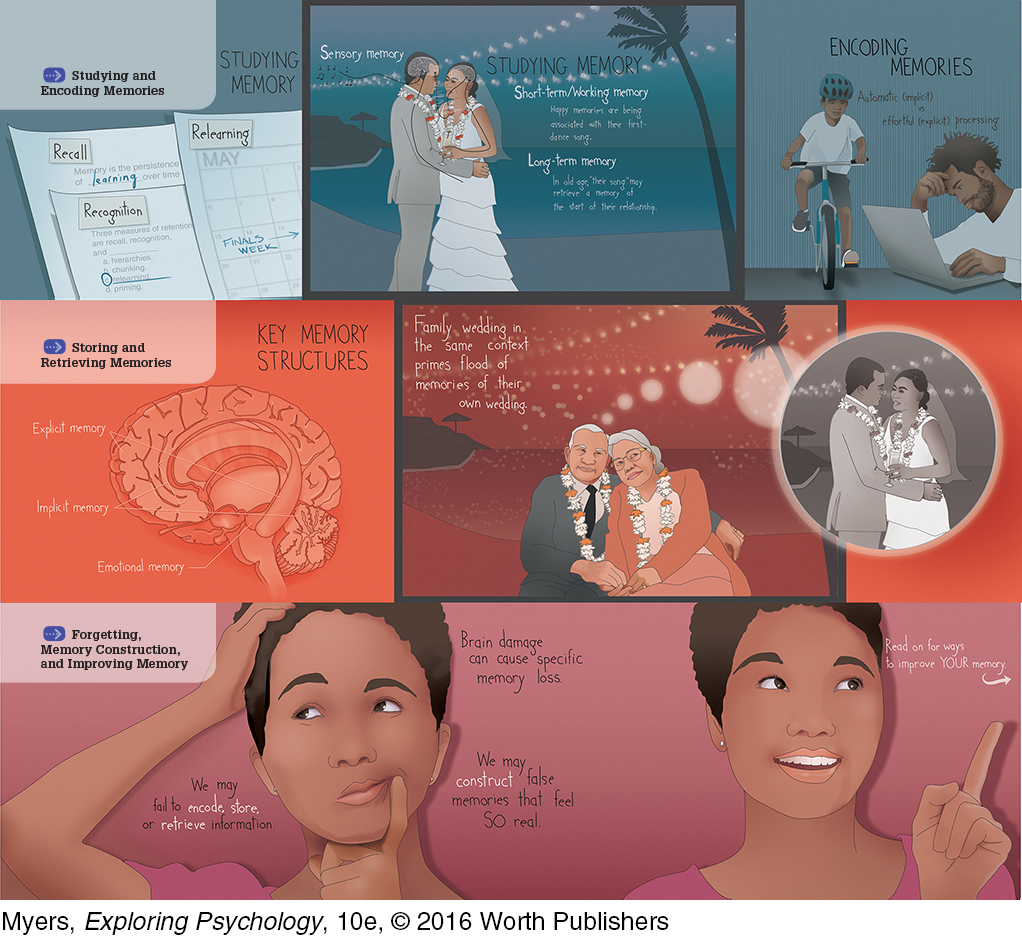Chapter 8 Introduction
280

Memory1

Studying and Encoding Memories
Storing and Retrieving Memories
Forgetting, Memory Construction, and Improving Memory
281
BE thankful for memory. We take it for granted, except when it malfunctions. But it is our memory that accounts for time and defines our life. It is our memory that enables us to recognize family, speak our language, find our way home, and locate food and water. It is our memory that enables us to enjoy an experience and then mentally replay and enjoy it again. It is our memory that enables us to build histories with those we love, and it is our memory that occasionally pits us against those whose offenses we cannot forget.
In large part, we are what we remember. Without memory—
Researchers study memory from many perspectives. We’ll begin by looking at the measuring, modeling, and encoding of memories, and we will examine how memories are stored and retrieved. Then we’ll explore what happens when our memories fail us, and look at ways to improve memory. 